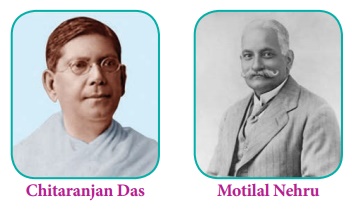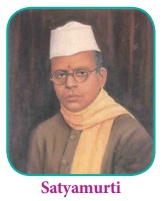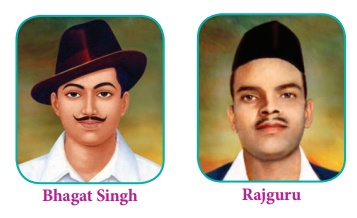Swarajist Party and its Activities
Following the suspension of Non-cooperation the question was what next? Chittaranjan Das and Motilal Nehru proposed a new line of activity. They wanted to return to active politics which included entry into electoral politics and demonstrate that the nationalists were capable of obstructing the working of the reformed legislature by capturing them and arousing nationalist spirit. This group came to be called the ‘Swarajists and pro-changers’. In Tamil Nadu, Satyamurti joined this group.

There was another group which opposed council entry and wanted to continue the Gandhian line by mobilizing the masses. This team led by Rajagopalachari,Vallabhai Patel and Rajendra Prasad was called ‘No changers.’ They argued that electoral politics would divert the attention of nationalists and pull them away from the work of mass mobilization and their issues. They favoured the continuation of the Gandhian constructive programme of spinning, temperance, Hindu-Muslim unity, removal of untouchability and mobilise rural masses and prepare them for new mass movements. The pro -changers launched the Swarajya party as a part of the Congress. A truce was soon worked out and both the groups would engage themselves in the Congress programmes and their work should complement each other’s activities under the leadership of Gandhi, though Gandhi personally favoured constructive work.

The Swarajya party did reasonably well in the elections to Central Assembly by winning 42 of the 101 seats open for election. With the cooperation of other members they were able to stall many anti-people legislations of the colonial regime, and were successful in exposing the inadequacy of the Act of 1919. But their efforts and enthusiasm petered out as time passed by and consciously or unconsciously they came to be co-opted by the Government as members of several committees constituted by it.
In the absence of nationalist mass struggle, fissiparous tendencies started rising their head. There were a series of communal riots with fundamentalist elements occupying the space. Even the Swaraj party was affected by the sectarianism as one group in the name of ‘responsivists’ started cooperating with the government, claiming to safeguard “Hindu interests”. The Muslim fundamentalists similarly seized the space created by the lull in national struggle and started fanning communal feeling. Rise of Left Radicalism Gandhi was pained at the developments. To contain the communal frenzy he went on a 21 day fast.
Left Movement
Meanwhile socialist ideas and its activists also had filled some space through their work among peasants and workers. The labour and peasant movements were organized by the ‘leftists’. Marxism as an ideology to criticise colonialism and capitalism had gained ground. It manifested itself in the organization of students and youth apart from trade unions. Jawaharlal Nehru and Subhas Chandra Bose contributed to the spread of leftist ideology. They argued that both colonial exploitation and the internal exploitation by the emerging capitalists should be fought. A group of youngsters with S A. Dange, M.N Roy, Muzaffar Ahmed along with elderly persons such as Singaravelu form Tamilnadu founded the peasants and worker’s parties. The government came down heavily on the communist-socialists and the revolutionaries a series of ‘conspiracy cases’ such as Kanpur, Meerut, Kakori were booked.

It was at this juncture Bhagat Singh, Chandrashekar Azad, Rajguru and Sukhdev emerged on the scene. The Naujawan Bharat Sabha, Hindustan Republican Association were started and thousands of youngmen and women became active anti-colonialists and revolutionaries. Youth and student conferences were organized all over the country. Meanwhile Ramprasad Bismil and Ashfaq-ullah were convicted to death and 17 others were sentenced to long term imprisonment in the Kakori conspiracy case. Bhagat Singh, Chandrashekar Azad and Rajguru, enraged at the police brutality and death of Lajpat Rai, killed Saunders, the British police officer who led the lathi charge at Lahore. Bhagat Singh and Batukeswar Dutt threw a bomb into the central Assembly hall on 8 April 1929. In 1929 the Meerut conspiracy case was filed and three dozen communist leaders were sentenced to long spells of jail terms. All these developments and incidents are discussed in detail in the next lesson.















